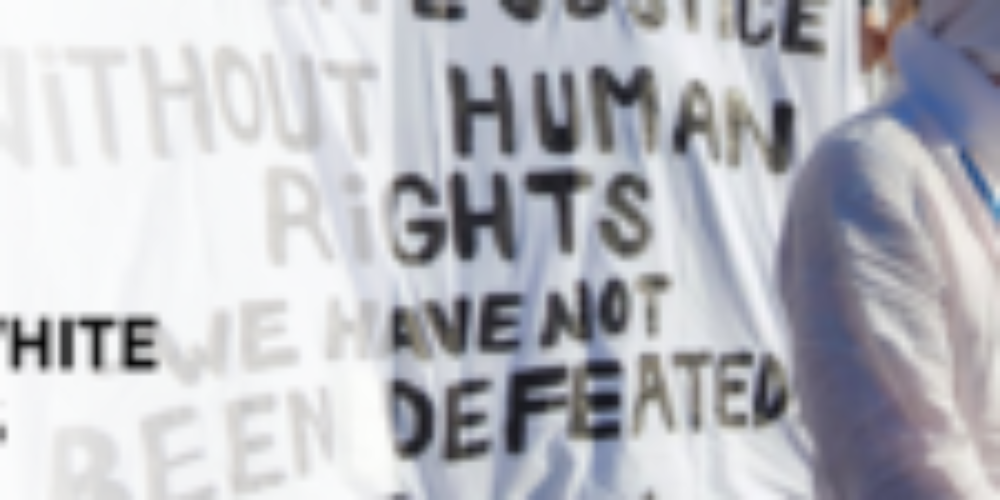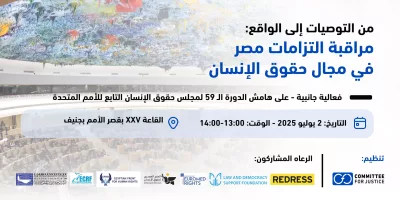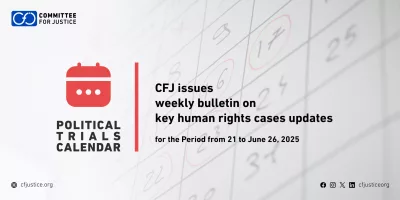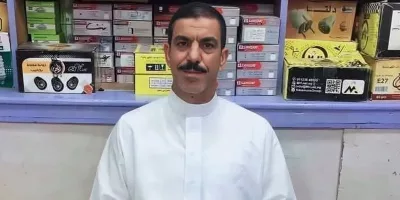Meanwhile, visits to Alaa Abdel Fattah have been banned amid African and UN statements of condemnation, and a human rights defender is barred from entering Egypt.
With the start of the activities of the fifth day of the COP27 Climate Summit, held in the Egyptian city of Sharm El-Sheikh, activists and human rights defenders continued their activities in parallel with the conference, condemning the human rights violations perpetrated by the Egyptian regime.
A stand in white in solidarity with prisoners of conscience in Egypt:
COP27 participants held a silent protest in white uniform on Thursday in solidarity with thousands of prisoners of conscience and human rights defenders in Egypt, and against the restriction of the right to peaceful assembly. The protest was held following a call by human rights defender, Hossam Bahgat. Meanwhile, a number of activists held a demonstration in solidarity with Abdel Fattah in front of the Egyptian Consulate in New York.
African and UN reactions:
The African Commission on Human and Peoples’ Rights issued a statement during COP27 calling for commitment to human rights-based policy measures on climate issues. The statement said that the Commission is working on studying and evaluating the link between climate and human rights and how to limit the harmful effects of climate on the rights and freedoms of individuals and societies. It also urged African governments to create conditions for the effective participation of civil society groups and other NGOs through values, including respecting and protecting freedom of expression and access to information, freedom of association, and protection of environmental human rights defenders.
Meanwhile, UN constituencies representing thousands of climate justice, women and gender, labor, youth and indigenous peoples NGOs signed a letter calling on the Egyptian authorities to immediately release Alaa Abdel Fattah, and all prisoners of conscience targeted for their peaceful activism in Egypt, noting that “there is no climate justice without human rights.”
The summit on Thursday hosted a panel on the current human rights situation in Egypt, the role of civil society on climate issues, and how crushing freedom of expression is hindering calls for environmental justice. The panel explored how Germany, the Netherlands and Sweden can play a role in climate justice.
Counter-moves from the Egyptian authorities:
The Egyptian authorities continued their attempts to mobilize against human rights calls. A leaked video circulating on social media showed how one of the participants at a protest in solidarity with the Egyptian MP who was escorted out by security personnel from a COP27 event after heckling the speaker, Sanaa Seif, was dictated and told what to say and chant in the protest beforehand.
Egyptian broadcaster Ibrahim Issa criticized Alaa Abdel Fattah’s “anarchist ideas” and that the Egyptian state “does not bother or fear any activist, and that it showed great maturity in accommodating different opinions during the climate summit.”
A pro-government lawyer lodged a complaint against Sanaa Seif with the Egyptian Public Prosecutor, accusing her of “spreading false news” as she continues to take part in COP27 and speak to the media about her detained brother.
A ban on visiting Abdel-Fattah and continuing arrests:
With regard to the developments in the Alaa Abdel-Fattah case, his lawyer Khaled Ali announced on Thursday that he had received a permit from the Public Prosecution to visit his client in his prison but that he was barred from entry to the Wadi El-Natrun prison by Brigadier General Tamer Shaaban, on the pretext that the date of the permit was wrong. Mona Seif, the activist’s sister, announced that his mother, Laila Soueif, was prevented from obtaining a letter from him and was notified that there had been a “medical intervention” with him with the knowledge of judicial authorities.
The Committee for Justice documented repeated complaints from some prisoners’ families in Badr 1 and Badr 3 prisons that their mobile phones were searched by the prison’s Special Security Forces during their visit or handing over their relatives’ belongings, and that the security had reviewed the phone data and search engines for any material related to political opinions. CFJ also documented the investigation of 47 defendants who appeared today at the Supreme State Security Prosecution.
Banning a human rights activist from entering Egypt:
CFJ also documented the barring of Italian human rights defender Giorgio Caracciolo from entering Egypt. Caracciolo is a member of the Executive Committee of the Euro-Mediterranean Human Rights Network and Deputy Director of International Programs in DIGNITY (the Danish Institute for the Prevention of Torture).
In response to this incident, a group of local and international human rights organizations issued a statement condemning the ban, describing it as an affirmation of the restrictions facing civil society during COP27, amid an organized campaign on the rights to freedom of expression, peaceful assembly and association.






